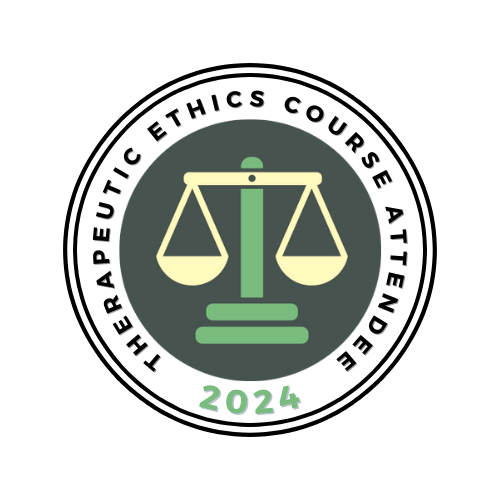Rochelle Shapiro
Credentials
Finances
Licensed Abroad
- Efrat
- Gush Etzion
Rochelle Shapiro
 Verified
Verified
Credentials
Psychotherapist
LMFT
Finances
350-500 NIS
None
Sliding Scale | Free Consultation | Student Discount
ABOUT THE THERAPIST
As a California Licensed Psychotherapist, my passion is helping people live happier, more fulfilled lives. I'm here to help you uncover your strengths, tackle what might be holding you back from your goals, and build stronger more connected relationships. I provide a safe and non-judgemental space. My approach is evidence-based, tailoring to your unique needs and goals. I'm person-centered and direct and I encourage collaboration with my clients. You are the expert of you. Together we will work to develop new attitudes and strategies that will help improve your ability to navigate all of life’s situations.
Therapy is not a magic pill or a quick fix, but a healing process that necessitates participation and investment from both client and therapist. But in the end, after working on making small changes to self-defeating thoughts and behaviors and coping with feelings of sadness, fear, and pain, life-altering results can be achieved.
Now is the time to begin the journey of healing and I will be with you every step of the way.
QUALIFICATIONS
LMFT
Touro University
2014
Degree
LMFTEducation
Touro UniversityYear of Graduation
2014Years in Practice
11
LICENSED IN THE USA
ADDITIONAL CREDENTIALS
Law and Ethics CEU - Gerry Grossman Seminars - 2024
DISTANCE COUNSELING
Telephone Counseling, Online Therapy
PRIMARY SPECIALTIES
Adjustments
Anxiety / Panic
Couples / Relationship / Marriage Counseling
Life Transitions
Parenting Issues / Training
ADDITIONAL SPECIALTIES
Attention Deficit Hyperactivity Disorder (ADHD)
Autism Spectrum
Codependency
Depression
Family Issues
Grief
Postpartum Depression
Sexual Abuse / Rape
Spiritual Concerns
CLIENT FOCUS
Population
Children
Adults
Couples
Families
Men
Women
Languages Spoken
English
TREATMENT APPROACH
Cognitive Behavioral Therapy (CBT)Cognitive Behavioral Therapy (CBT) is a type of psychotherapy that focuses on how one's thoughts, feelings and behaviors are connected and can be changed. It is based on the idea that how we think (cognition) and how we feel (emotion) can influence how we behave. CBT helps people identify and challenge distorted thinking and replace it with more balanced thinking, leading to improved mood and behavior. ‘Homework’, usually containing practical writing exercises, is often completed by the client between sessions to reinforce the therapy. Examples of tools that practitioners often use are journaling, challenging beliefs, and mindfulness.
Existential PsychotherapyExistential psychotherapy is a form of psychotherapy that emphasizes an individual’s subjective experience of existence. It is a philosophical approach to psychotherapy that views the individual as ultimately responsible for creating a meaningful life. This form of psychotherapy helps individuals explore their subjective experiences, understand their personal values and beliefs, find ways to live more authentically, and make meaningful choices. The ultimate goal is to help the individual reach a greater sense of self-awareness and personal fulfillment.
Narrative TherapyNarrative therapy is a form of psychotherapy that focuses on the stories, or narratives, of a person's life in order to help them gain insights into their situation and develop skills to make positive changes. It is based on the idea that people construct their own stories and meanings to make sense of their lives and experiences. It emphasizes the strengths, values, and skills of the person, while also exploring the influences of culture and context on their life. Narrative therapy seeks to empower individuals by helping them to identify and use their inner resources to overcome challenges and create positive change.
Person-Centered Therapy (Rogerian Therapy)Person-centered therapy, or Rogerian therapy, was developed by Carl Rogers in the 1940’s. It is a form of talk therapy that emphasizes the importance of providing psychological safety, unconditional positive regard, and empathic understanding to clients. This type of therapy is based on the belief that individuals have an innate capacity for self-actualization and self-understanding and that the therapist's role is to provide a supportive environment in which this process can take place. Through the use of active listening, open-ended questions, and non-judgmental reflection, the therapist helps the client to explore their thoughts, feelings, and experiences in a safe and accepting environment. By doing so, clients are able to gain insight into their issues, develop a greater understanding of themselves, and work towards personal growth.
Psychodynamic TherapyPsychodynamic therapy is a form of therapy that focuses on the unconscious mind and how it affects behavior. It works to help people understand and work through past experiences and feelings that may be causing difficulties in the present. This type of therapy encourages individuals to explore their emotions, relationships, and behaviors in order to gain insight into their current difficulties. It can help individuals better understand themselves and their motivations, and gain insight into how past events have impacted their current lives. People tend to develop defense mechanisms when faced with challenges in life. Defense mechanisms may keep painful feelings, memories, and experiences in the unconscious. A few common defense mechanisms include: denial, repression, and rationalization. Psychodynamic therapists encourage people to speak freely about their emotions, desires, and fears. Being open may help uncover vulnerable feelings that have been pushed out of conscious awareness. According to psychodynamic theory, behavior is influenced by unconscious thought. Once painful feelings are brought forth and processed, the defense mechanisms are no longer needed and a person in treatment can start changing unhelpful patterns when coping with life’s challenges.
SERVICES OFFERED
Individual Therapy
Consultation
Couples Therapy
Family Therapy
Group Therapy
Home-based Therapy

 Verified
Verified

